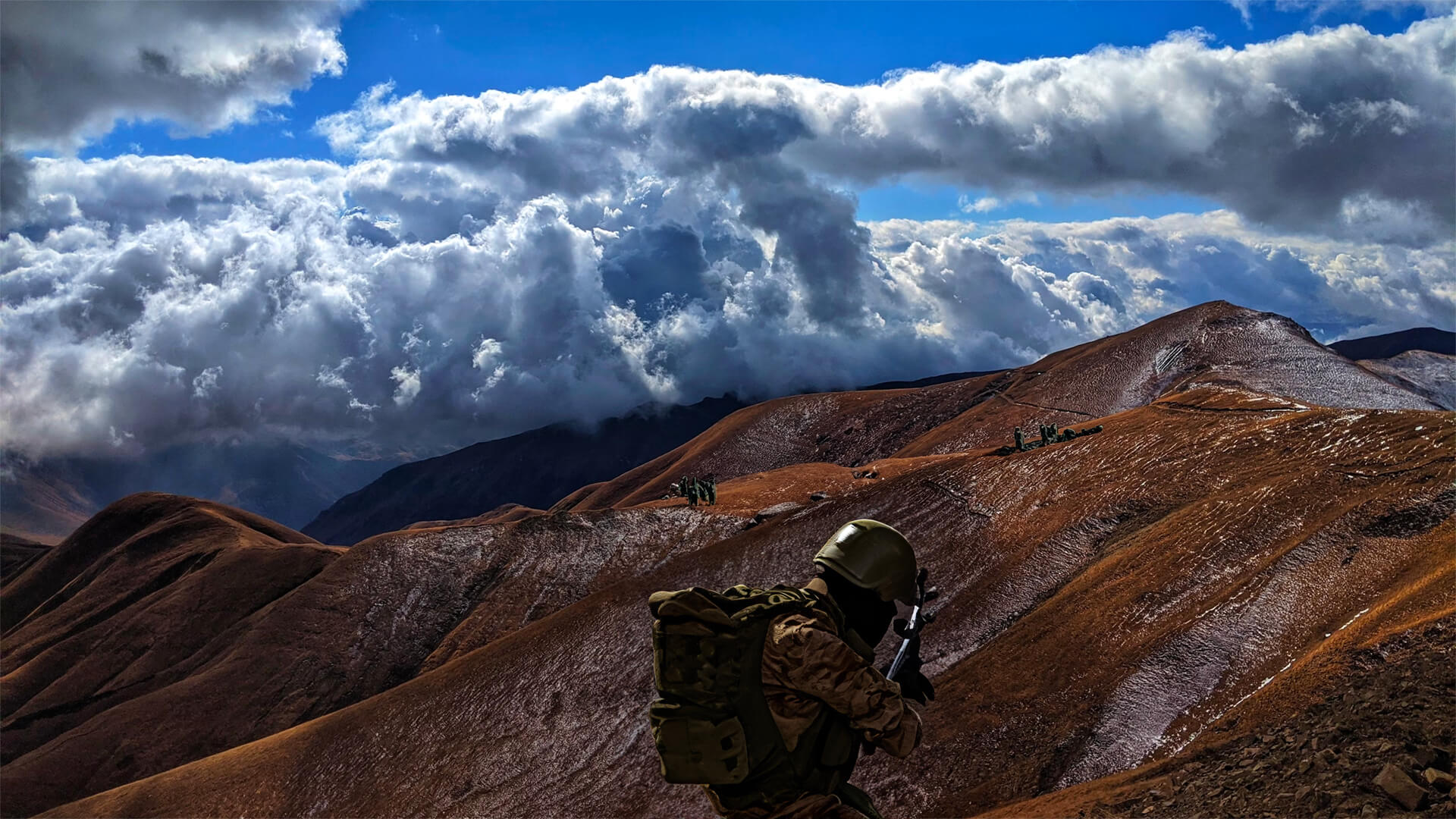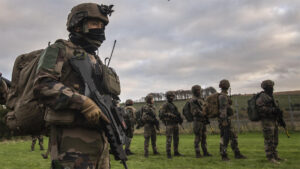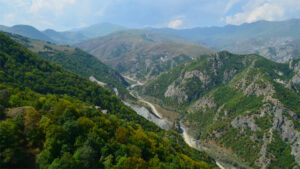Well, my attempt at prepping a video this morning and getting ahead of a brewing war between Armenia and Azerbaijan has failed. Hostilities broke out within minutes of me finishing the recording, but here’s what’s what…
Here at Zeihan On Geopolitics we select a single charity to sponsor. We have two criteria:
First, we look across the world and use our skill sets to identify where the needs are most acute. Second, we look for an institution with preexisting networks for both materials gathering and aid distribution. That way we know every cent of our donation is not simply going directly to where help is needed most, but our donations serve as a force multiplier for a system already in existence. Then we give what we can.
Today, our chosen charity is a group called Medshare, which provides emergency medical services to communities in need, with a very heavy emphasis on locations facing acute crises. Medshare operates right in the thick of it. Until future notice, every cent we earn from every book we sell in every format through every retailer is going to Medshare’s Ukraine fund.
And then there’s you.
Our newsletters and videologues are not only free, they will always be free. We also will never share your contact information with anyone. All we ask is that if you find one of our releases in any way useful, that you make a donation to Medshare. Over one third of Ukraine’s pre-war population has either been forced from their homes, kidnapped and shipped to Russia, or is trying to survive in occupied lands. This is our way to help who we can. Please, join us.
Transcript
Good morning from Foggy, Asheville, North Carolina. Peter Zeihan here. And today we’re talking about some things that are going on with the Armenians and the Azerbaijanis. Now, Armenia and Azerbaijan are two of the 15 post-Soviet republics. They were constituent parts of the Soviet Union, and they sell into war between the two of them, while the Soviet Union still existed gives you an idea of the depth of the animosity.
I could write a small book about the details of why they were warring, but the bottom line is, is that the two of them have an integrated geographic system, and the people that we today consider the Armenians, and to a lesser degree the Azerbaijanis, have kind of moved around throughout history. So the irredentist claims on each other’s territories are pretty robust, but most importantly, the access points to and from their core population centers intermingle.
And it’s very difficult for one of them to have security if the other one does. In the 1980s, the war basically took a pretty familiar form. The Armenians, using backing and security guarantees from the Russians, were able to launch a series of assaults on Azerbaijani positions and usually outmaneuver them not just because they had better trained troops and higher morale, but the Azerbaijani troops were honestly, completely incompetent.
And in the course of the war, Azerbaijan ultimately lost control of over a fifth of their territory, and a lot of that remains occupied by the Armenians today. The biggest change in the war happened a little over. Guns had been two years now. Yeah, it’s been about two years. When Azerbaijan got a hold of a bunch of Turkish combat drones and in a lightning conflict that lasted under a month, just decisively destroyed every Armenian force they came up against.
Now, a couple of things here. Number one, this was the first time we really saw drones in combat as a regular plank of military policy as opposed to just doing a little recon or assassinations here and there. It was the mainstay of the be Azerbaijani effort to the Azerbaijanis only had the drones as majority troops, maybe better trained, had better equipment that they did back during the war of the 1990s, but they’re still broadly incompetent.
So the Azerbaijanis were only able to follow up on those assaults in a very limited way. Which brings us to today. The we’ve had two big changes in circumstance. Number one, the Azerbaijanis have spent the last year turning up. The regular forces were still undoubtedly awful, but they’re not as awful as they used to be. And so if we were to see a repeat of the war of two years ago when the drones cleared the way the Azerbaijanis undoubtedly would be able to advance further and take more territory.
And they know it and the Armenians know it. On the other side of things, the Armenians security guarantor, the Russians is bogged down up to its eyeballs in Ukraine. Sorry for the mixed metaphor there. That’s all they got. And they’ve been steadily pulling troops out of every other operation that they’ve got everywhere. A lot of the African troops have been pulled back.
The the forces that the Russians used to keep on NATO’s borders have largely been relocated. There are other troops in the Caucasus that have been returned. As for the Russian forces in Armenia that are supposedly there to guarantee the secured their ally, you know, will they fight here and they fight. And is all their equipment still there? And do the Russians even have the capacity to think about getting involved in a secret military conflict?
Remember that Russian forces don’t have a land connection to Armenia. That’s direct. They have to go through either Georgia or Azerbaijan, two countries that obviously have a vested interest by happening. If they feel they can stand up to the Russians, which now they might. So if you were Armenia, your only solution here is to find another security guarantor.
And options are thin. Number one would be the United States, which would be a big push. But as a region or to get along pretty well with the Americans and anything that with the Americans is going to require some sort of return to the status before the war in the 1990s, which means the Army to give it up all the land that they’ve conquered.
That could get interesting. Number two is Turkey. But Turkey is a tight ally of Azerbaijan. So again, same problem that just leaves Iran. Now, Iran is Muslim, Armenia is Christian. But as geopolitics knows, no loyalties. The two of them have been de facto allies for most of the time since the post-Soviet collapse. Iran and the Russians, while they don’t always see eye to eye broadly, do see the Turks and the Americans as a problem.
And Azerbaijan is populated by Azerbaijanis, and the single largest ethnic minority in Iran are people of Azeri descent. So the Iranians have always been concerned about having an independent as region on their borders. Which brings us to an interesting little quirk here. The Armenian lobby in the United States is very powerful, not just because of culture. You know, this isn’t to share in the Kardashians.
It is very deeply rooted, certainly the USA’s State Department and into Hollywood. And as a result, usually the second, third or fourth largest single component of the U.S. aid budget has been going to Armenia. And that was established during the wars in the 1980s when it was the Armenians who were very clearly the aggressors. Cause it’s a potent force even today, especially in Congress, which means as Armenia is looking for alternatives, we’re going to see something really colorful in the United States.
We’re going to see the entrenched Armenian lobby going head to head with the entrenched anti-Iranian lobby, because the two of them on this topic are going to be diametrically opposed. And against all of this, you’ve got the Azerbaijanis trying to figure out what they can do next. Whenever you have a mountainous territory, it’s all about the access points.
There are very few places and a lot of mountain chains where you can run supplies or troops or transport or economics and you fight over those corridors. There are a couple of those corridors that are now in dispute or they were always in dispute, in hot dispute between the Armenians and the Asbjorn, is that if the Azerbaijanis get their way, they’re going to be able to cut a connection.
Really the only one that matters between Armenia and Iran altogether that can’t help but trigger a response from Tehran. And all of a sudden, U.S. policy is very interesting on this topic. It’s one of the weird things where domestic politics and foreign politics can merge in a way that is, well, delightfully lively. I don’t think that the Azerbaijanis are confident enough to do a general assault, but cutting a single corridor and putting a few troops in there and order to engage the Turks in the Americans responses.
Yeah, I can see that totally working. All right. That’s it for me. I’ll let you know more as I see it.








